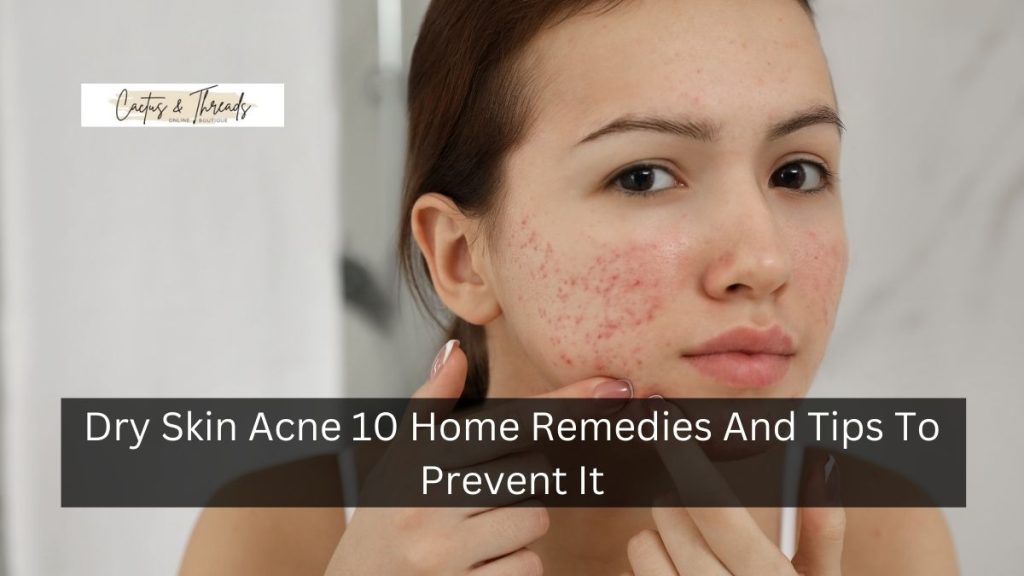
Acne is commonly associated with oily skin, but individuals with dry skin can also experience breakouts. Dry skin can lead to irritation and inflammation, creating an environment conducive to acne development.
Addressing acne in dry skin requires a delicate balance between treating breakouts and maintaining adequate skin hydration. Below are ten home remedies and preventive measures to help manage and prevent acne in dry skin.
1. Gentle Cleansing
Use a mild, fragrance-free cleanser to remove impurities without stripping the skin of its natural oils. Avoid harsh soaps and exfoliants that can exacerbate dryness and irritation. Cleansing twice daily—morning and night—is sufficient to keep the skin clean without over-drying.
2. Regular Moisturization
Apply a non-comedogenic moisturizer immediately after cleansing to lock in moisture. Look for products containing hydrating ingredients like hyaluronic acid and ceramides, which help restore the skin’s barrier function and prevent dryness.
3. Avoid Overwashing
Excessive washing can strip the skin of essential oils, leading to increased dryness and potential breakouts. Limit face washing to twice daily and after sweating to maintain the skin’s natural moisture balance.
4. Use Lukewarm Water
Hot water can further dry out the skin. Opt for lukewarm water when washing your face to preserve natural oils and prevent additional dryness.
5. Incorporate Humidifiers
Dry indoor air can worsen skin dryness. Using a humidifier adds moisture to the air, helping to keep the skin hydrated, especially during colder months when indoor heating is prevalent.
6. Choose Non-Comedogenic Products
Select skincare and makeup products labeled as non-comedogenic, meaning they are formulated not to clog pores. This reduces the risk of acne formation while ensuring the skin remains moisturized.
7. Hydrate Internally
Adequate water intake is essential for overall skin health. Drinking sufficient water helps maintain skin hydration from within, supporting the skin’s natural barrier and reducing the likelihood of dryness-induced acne.
8. Avoid Harsh Ingredients
Steer clear of skincare products containing alcohol, fragrances, and other harsh chemicals that can irritate and dry out the skin. Instead, opt for gentle, hypoallergenic formulations designed for sensitive skin.
9. Apply Aloe Vera
Aloe vera has soothing and anti-inflammatory properties beneficial for dry, acne-prone skin. Applying pure aloe vera gel can help reduce inflammation and provide hydration, promoting healing and comfort.
10. Maintain a Balanced Diet
A diet rich in antioxidants, vitamins, and minerals supports skin health. Incorporate fruits, vegetables, whole grains, and lean proteins into your meals to provide the nutrients necessary for skin repair and maintenance.
Conclusion:
Managing acne in dry skin involves a comprehensive approach that focuses on gentle skincare practices, consistent hydration, and the use of appropriate products. By implementing these home remedies and preventive measures, individuals can effectively address acne while maintaining healthy, hydrated skin.
READ ALSO:







